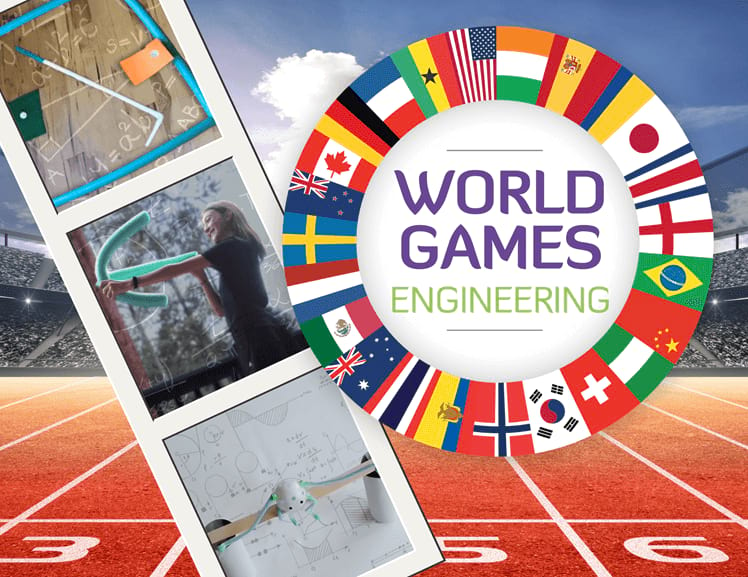
At Engineering For Kids®, we’re bridging the gap between the classroom and the playground with our newest program: World Games Engineering! This brand-new curriculum marries the thrill of global sporting events with our unique STEM-based learning programs.
World Games Engineering is designed to introduce science, technology, engineering, and math (STEM) to children through fun and exciting hands-on activities. Students will dive into various sports, uncover the science and math principles at play, harness engineering skills to enhance the experience and engage in friendly competitions.
Erica Larson: World Games Engineering Maestro
Leading this initiative is Erica Larson, a STEM Curriculum Developer at Engineering For Kids®. With over 20 years of expertise in teaching and curriculum development across all educational levels, Erica is a veritable fountain of fantastic curriculum ideas that resonate with students of all ages.
As the STEM Curriculum Developer, Erica designs educational materials and programs that not only meet learning objectives but also captivate students’ imaginations. She’s the brains behind World Games Engineering, and we’re all ears to discover more about this exciting new program.
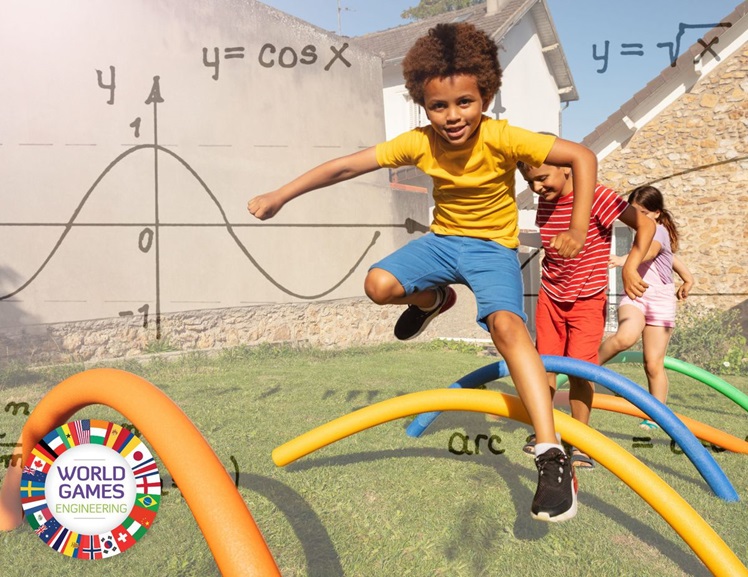
Could you provide an overview of the curriculum’s structure within the World Games Engineering program?
Erica: The adventure begins with Kelvin’s Kickoff Ceremony lesson extension. Students form country teams and collaborate to name their country, design a flag, create a slogan, and a team cheer, which will be incorporated throughout the program.
Each lesson introduces a new athletic event and the STEM concepts behind it. Then, they will use the EFK Engineering Design Process to engineer their own version of the game and experience the thrill of competing with their classmates for gold, silver, and bronze medals.
The grand finale? Kelvin’s Closure, where the final medal counts are tallied, and all countries are recognized and celebrated.
In what ways does the program encourage students to engage with engineering challenges related to various sports? Could you share examples of these challenges?
Erica: The lessons begin with an introduction to an athletic event. Next, students learn about the science and math principles that influence a player’s success in the game. Then, students tackle a hands-on engineering challenge and compete in a friendly competition.
Take the miniature golf lesson: students learn how to measure and calculate angles. Then, they build their own miniature golf hole, create a course, and compete in a friendly round of miniature golf.
Or the skateboarding lesson, students learn about the sport and how professional competitions are scored. They learn how to calculate slope and understand how the slope of a ramp can influence a skater’s ability to perform tricks. Next, students build a fingerboard and skatepark features to create their own skatepark and come up with a routine of runs and tricks for the competition.
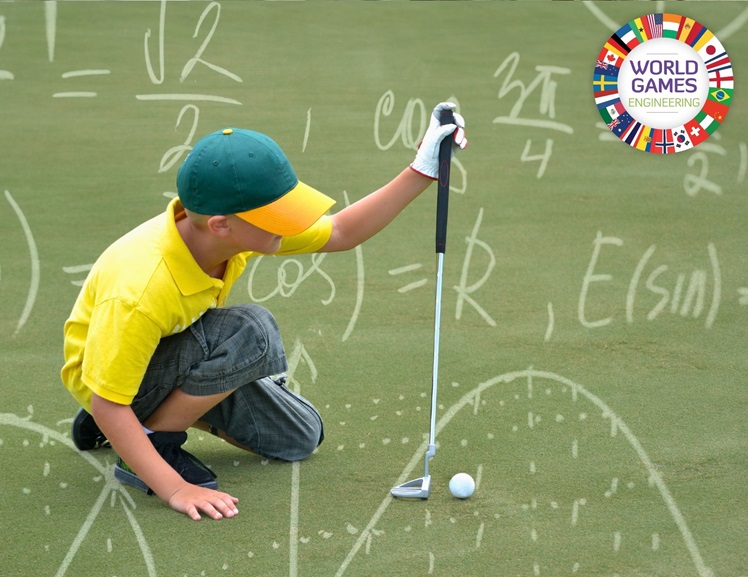
How does the curriculum nurture creativity and problem-solving skills in students? Are there specific elements or approaches that encourage these skills during the learning process?
Erica: Our challenges are open-ended, allowing creativity to soar. During the Ask, Brainstorm, and Design phases of the EFK Engineering Design Process, students concoct creative solutions.
In the Test and Improve phase, they apply problem-solving skills to optimize the performance of their project.
The engineering notebook and lesson-ending discussion questions allow students to reflect on their learning and growth throughout the process.
Considering different age groups or skill levels, how does the curriculum adapt to meet the learning needs of junior-level participants?
Erica: The Junior-level curriculum is more guided and open-ended than the Apprentice/Master-level lessons. Students explore sports and STEM concepts through carefully selected read-aloud books that introduce sports and STEM concepts in an age-appropriate way, reinforcing important literacy skills.
In my experience, I have found that some Junior age students struggle with competition and the concept of winners and losers. Therefore, the curriculum offers strategies to support Junior-age students or eliminate the competition piece to ensure that fun remains at the forefront of their learning experience.
Could you elaborate on the materials and resources used within the curriculum?
Erica: We have heard from many of the Engineering For Kids® locations that they and their students value having a take-home project at the end of a lesson. As a result, all lessons at both the Junior and Apprentice/Master levels primarily use basic materials available at craft and hobby stores, with each lesson featuring a take-home project.
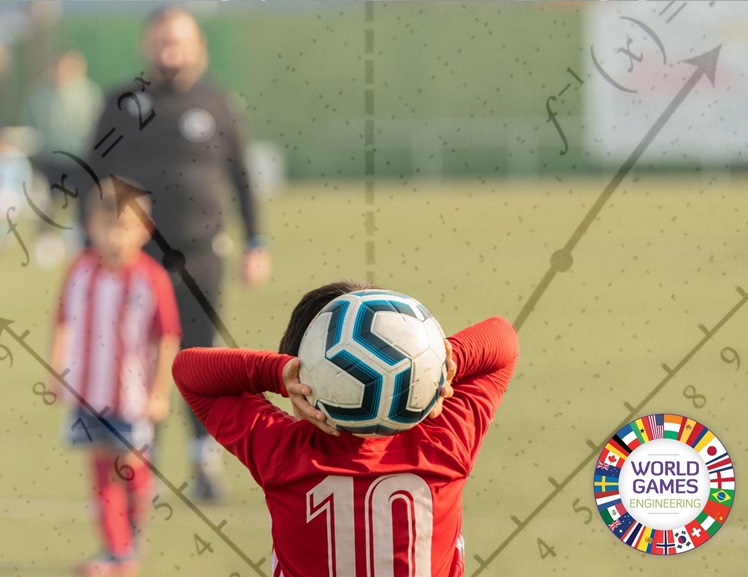
Beyond specific events, how can the World Games Engineering program be leveraged throughout the year?
Erica: The World Games Engineering curriculum is designed to be versatile, and can be offered at any time throughout the year. The program integrates a competition component, which can be easily removed along with the awarding of medals at the end of a competition. When the extensions and medals are removed from the program, the curriculum simply becomes a sports-themed program.
Without the competitive element, World Games Engineering is leveraged in a variety of different ways. For example, when soccer and basketball season are revving up in your community, why not offer a one-day workshop with these lessons to engage students in an activity they are already excited about?
You could also offer these programs in conjunction with March Madness, the World Cup, or X Games. If you have the opportunity to partner with a sports center or athletic program in your community, students could spend half the day taking a STEM approach to the sport, and the other half of the day learning how to physically play the sport and apply the concepts they have learned in the lessons.
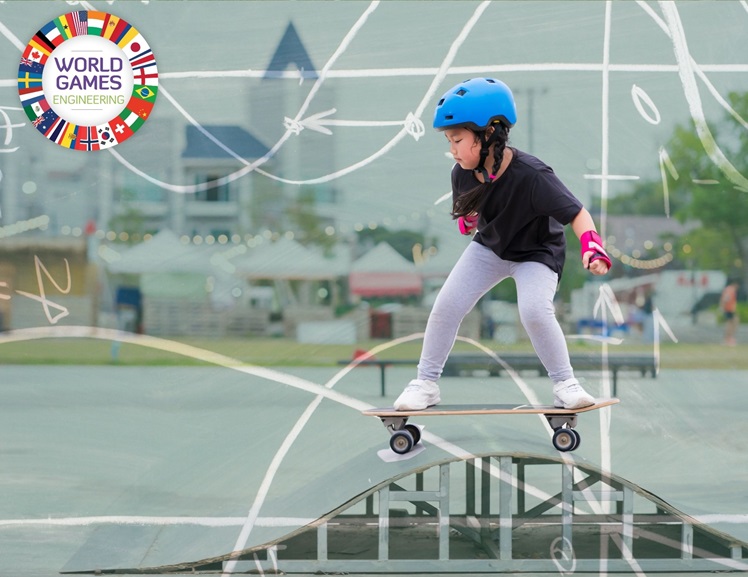
What are the anticipated impacts of the World Games Engineering program on students’ perceptions of STEM fields? And how does it contribute to developing a lasting interest in STEM among participants?
Erica: Many children thrive when they have the opportunity to be a part of a team and participate in a competition. However, not every child is athletically inclined. This program allows students with diverse interests and talents to experience what it is like to be part of a team and showcase their strengths in a competitive environment. This experience will help expand their exposure and build confidence in a variety of STEM disciplines while seeing just how fun the learning experience can be.
World Games Engineering: A New Way To Learn STEM
We’re thrilled to launch World Games Engineering —a perfect blend of athletics and STEM that will captivate every child. It’s an adventure where kids explore, create, and compete, diving into the cool world of science tech, engineering, and math with their favorite sports.
Embark on this exhilarating journey with us! Join World Games Engineering today and ignite your child’s passion for STEM through the thrill of sports.




